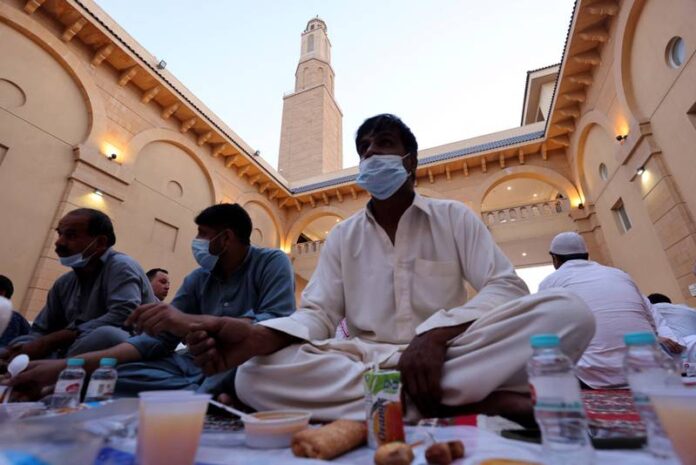Saudi Arabia has introduced iftar programmes in Djibouti and Somalia by circulating food baskets to needy families.
As per the reports, it is part of the kingdom’s broader campaign in more than 94 countries in order to provide people with meals, especially during Ramadan.
On Saturday, 9 April 2022, the Kingdom sent 2,500 Ramadan food baskets, as well as 15 tonnes of dates, to Indonesia.
Suf=dan also took benefit of this programme, with 15,000 food baskets and 10 tonnes of dates being allocated to them for distribution during the holy month of Ramadan.
In Bangladesh, 129,000 legatees will receive the food baskets with 20 kilograms of assorted groceries.
Last week, two hundred Ramadan food baskets were allocated to families in Pristina, Kosovo.
Moreover, Saudi Arabia has also circulated 200,000 copies of the Quran through religious authorities in Indonesia and sent 22,000 copies of the holy book to Tunisia for readers who do reading of Quran pak at local mosques, as per the reports.
Meanwhile, the kingdom is also ready to welcome or receive the one million pilgrims for Hajj in 2022. They are planning to welcome guests after a whole two years of curtailed participation because of the COVID-19 pandemic.
Foreign pilgrims will be permit for the first time since 2019. About 2.5 million pilgrims performed Hajj that year.
After concerning all the points of pilgrims’ safety “while ensuring that the maximum number of Muslims worldwide can perform the haj.
A specific number of pilgrims from each specific country will be only allowed to make the pilgrimage based on allocated quotas.
Those passengers and pilgrims coming from outside Saudi Arabia need to submit a negative COVID-19 PCR result from a test taken within 72 hours of travel.
However, since the coronavirus pandemic began in 2020, Saudi officials only gave a permit to 1000 pilgrims, and they are the only ones who can take part. In 2021, they increased the number, but the condition applies that only vaccinated passengers and pilgrims are allowed, and 60,000 were allowed who were chosen by a lottery.
Before the outbreak, some 2.5 million people travelled to Saudi Arabia for Hajj every year.

